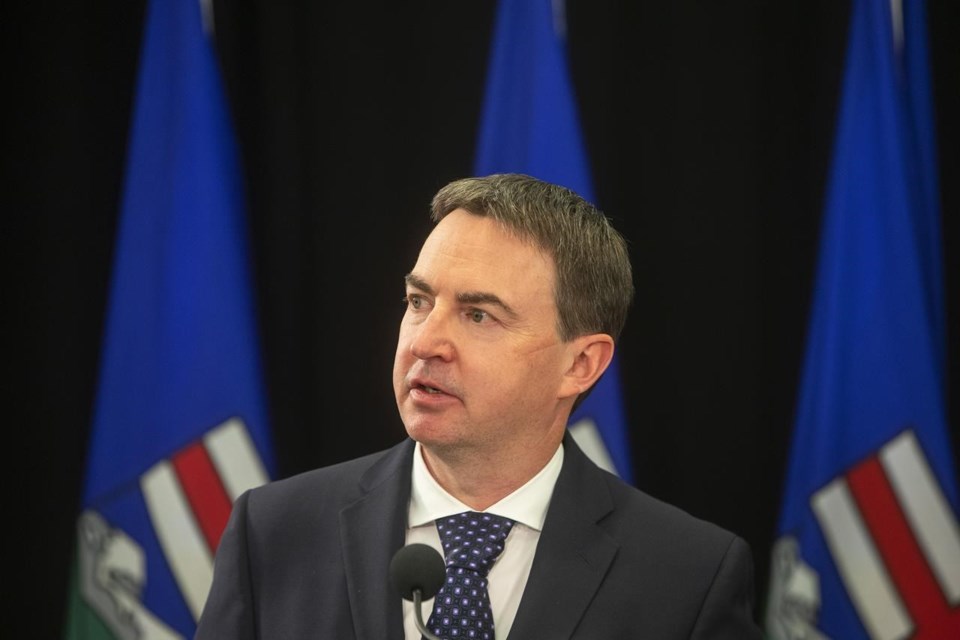CALGARY — Alberta is shortening its COVID-19 isolation period for people who are vaccinated against the virus.
Health Minister Jason Copping said effective Monday, people with at least two doses of vaccine who test positive will only need to isolate for five days from 10.
Copping said symptoms must be fully resolved by the end of the five-day period, otherwise, people must continue to isolate. For five days after isolation, those individuals will be required to wear a mask around others at all times when in public.
The decision was based on evidence that fully immunized people have shorter infectious periods, said Copping.
"We're making these changes to help prevent disruptions in Alberta's workforce, especially for those who deliver the services Albertans count on," he said at a news conference Friday.
"We believe this step will help balance the need for continuity in the workforce, the well-being of Albertans and our need to continue to reduce the spread of the Omicron variant."
Ontario, Saskatchewan and British Columbia have also reduced the self-isolation period to five days.
Alberta is also introducing an exemption for certain workplaces to bring workers back before their isolation period is complete.
Copping said if a disruption of service for 24 hours or more would be harmful to the public and there is no way to continue without reinstating staff, then a workplace could be deemed eligible.
"In these exceptional circumstances, additional health public health measures will be required," he added.
"For example, returning workers would not be allowed to remove their masks when in the same room as anyone else, at any time, even if they're distanced."
The announcement comes as the province is reporting record-high daily cases counts in the face of the rapidly spreading Omicron variant. Estimates show Alberta has more than 20,000 active cases, with about 4,000 new infections identified Thursday alone.
Alberta's chief medical officer of health, Dr. Deena Hinshaw, said Omicron is spreading faster than any previous variant and poses a significant potential threat to the health system.
"Even though it seems that a smaller percentage of cases are requiring acute care, we can expect that with a greater number of people infected that will soon translate into a greater number of people in hospital," Hinshaw said.
"How high these numbers will get is still not known."
She reminded Albertans the total number of active cases is greater than what is captured in provincial testing. She said daily numbers offer only a "snapshot" of the situation and help show proportionality and trends.
Reporting of COVID-19 cases, both active and new, in addition to other data, will resume Tuesday, said Hinshaw. That day, a breakdown of numbers from Dec. 29 to Jan. 2isto be released.
The Opposition NDP said the United Conservatives need to do more to curb the spread of COVID-19 and its variants.
"What we see today is not even remotely close to the leadership we need right now as we see unprecedented numbers of COVID cases confirmed day after day," NDP health critic David Shepherd said in a statement.
On Thursday, Education Minister Adriana LaGrange announced in-person classes for kindergarten to Grade 12 students would be delayed until Jan. 10. The decision was made during a cabinet committee meeting to discuss the threat of Omicron.
This report by The Canadian Press was first published Dec. 31, 2021.
Alanna Smith, The Canadian Press




